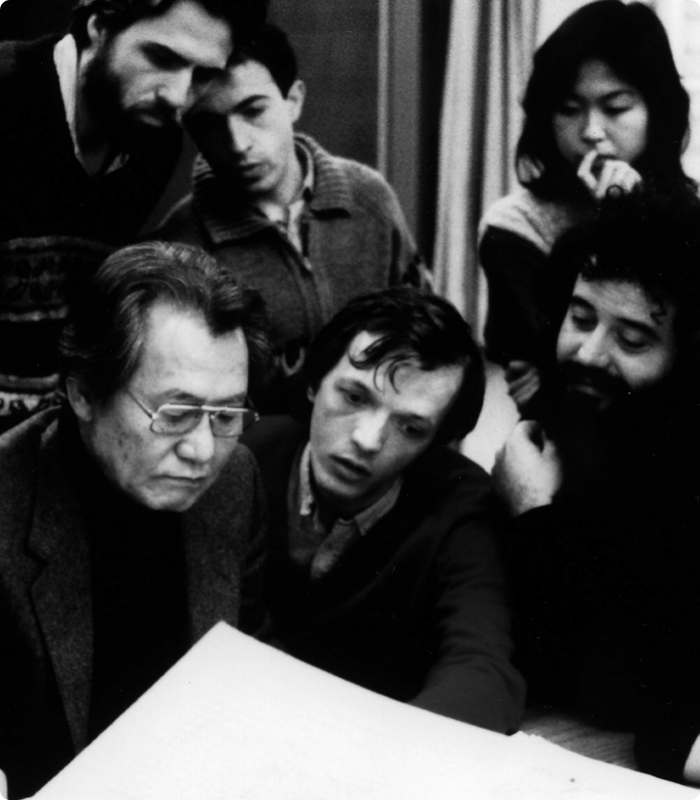
Composer Isang You was born on
September 17, 1917, in Tongyeong.
Composer Isang Yun was born on September 17, 1917, in Tongyeong. He pursued his studies in both Korea and Japan, spending two years at the Osaka Music Institute.
In 1944, he faced arrest and imprisonment on charges of resistance against the Japanese Occupation of Korea. After Korea's liberation in 1945, Isang Yun played an active role in
founding the Tongyeong Cultural Society, with the aim of reviving national culture. For several years, he worked as a music teacher in Tongyeong and Busan until 1952 when he moved to Seoul.
There, he taught at various universities while continuing his prolific compositions. At the age of 39, Isang Yun made a pivotal decision to study in Europe after receiving the Culture Prize of the City of Seoul
in 1955, making him the first composer to achieve this honor.


He attended the Paris.
He attended the Paris.
He attended the Paris Conservatory and the Berlin University of the Arts,
solidifying his position as a prominent composer on the world music stage.
However, in 1967, he faced a difficult period when he was forcibly abducted to Seoul
by the KCIA during the East-Berlin Espionage Incident.
After his release in 1969, with the support of the international artistic community and
the German government, he became a naturalized citizen of Germany.
During this period, Isang Yun created masterpieces such as the opera <Sim Tjong> in 1972,
which marked the inauguration of the Munich Olympics,
and <Engel in Flammen> in 1994,
leaving an indelible mark of East Asian essence on the hearts of Europeans.


His artistic contributions were recognized when he was awarded the Commander's Cross of the Order of Merit of the Federal Republic of Germany.
Despite Isang Yun's numerous efforts to contribute to the democratization and promote cultural exchanges between South and North Korea, including his proposal of the National Solidarity Music Festival in 1988,
which facilitated the first musical exchange between the two Koreas in 1990 after 45 years of separation, he was unable to fulfill his wish to return to his homeland. Tragically, he passed away in a foreign country on
November 3, 1995. His remains, initially laid to rest at Landschaftsfriedhof in Berlin-Gatow, were eventually transferred to his hometown of Tongyeong on March 20, 2018, through an agreement between the cities of
Tongyeong and Berlin, coinciding with the centennial of his birth.
